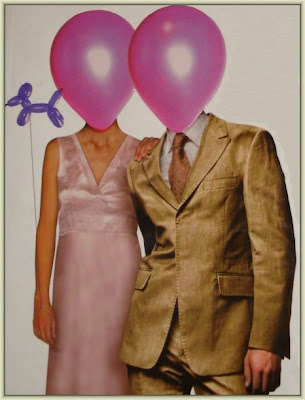

For almost ten years I have lived with this inside me hoping that some morning I’d wake and find it’s just all been a dream. Or maybe I would start seeing things differently. I recall conversations with colleagues in 2001 and watching them recoil when I spoke of postmodernism. Some had never heard of the term; others who had would nod scornfully and turn away.
Postmodernism is rationale for responsibleadults to behave like reckless adolescents.
Over the years, however, the word postmodern has crept into the lingo of educators. Now I hear it used freely by educators in the same way as artists talk of Cubism or historians speak of the Renaissance.
Just recently a good friend and colleague was listening to me bemoan the seemingly senseless happenings in education when he said with a smile of recognition, “You should read The Triumph of the Airheads. I’ll lend you a copy. Read it for yourself.” I thought he was having me on.
Shelley Gare’s The Triumph of the Airheads and the Retreat from Commonsense was first published in 2006 by Park Street Press.
Bruce Hammonds reviewed the book early in 2007. I’m half-way through it, and still not used to the déjà vu I get at every chapter. The world that I've observed this century and that I was slowly becoming convinced must have been only in my imagination, sits bolt upright like a pop-up on every page.
From the cover of the book:
“The airheads are winning. We live in an upside-down world where celebrity matters more than substance; correct spelling is considered less important than knowing how to do PowerPoint; bright maths and science students go into investment banking so they can make truckloads of money; and small girls seriously regard a trashy hotel heiress as a role model. We have an American president (2006) who gets Sweden and Switzerland mixed up and Australian politicians who spend millions on spin doctors while schools and hospitals go begging. The age of the airhead has one message. Commonsense doesn’t pay off. If you’re smart, be smarter: play dumb.”
It is astute. It is funny. It is insightful.
It is about how society is losing the plot.
Gare summarises seven key features of the contemporary airhead:
voracious consumerism,She mentions other elements:
obsession with statistics,
aversion to reading books,
selfishness,
short-term thinking,
love of hypothesis and the jargon that goes with it,
a tendency to bully.
conceited ignorance,
dislike of things serious,
remorseless when things go wrong.
We are in a world where it’s not only blissful to be ignorant, it also has to be celebrated.
Gare speaks of Paris Hilton as a postmodern Marie Antoinette. "Doesn’t anyone realise this woman - who hated the sight of books but loved to spend and party - got her head chopped off? Or why?"
Gare is knowledgeable of Newton’s third law – for every action there is an equal and opposite reaction – and explains how airheads seemingly rise above this fundamental principle:
“Airheads, at their most extreme, can worry only about themselves and the rest of the world can go to buggery. Airheadism thrives on concerning itself with the next five seconds because, with any luck, the next five minutes, days, months, years may, like, you know, never happen . . . or at least, if something does happen and it’s bad, it won’t happen to you. The best place to see all this in action is not in a Krispy Kreme doughnut store, or watching a twenty-something flashing a credit card on a Friday night over a $300 meal. It’s in the business pages of our newspapers, and on page one. Short-term thinking is the scourge of our times . . .”I think of the recent global financial catastrophe and read Gare’s words as (an historical) prophesy.
Check out:
The Sweet Smell of Success – Shelly Gare – The Australian News
Podcast – Shelley Gare on the language of Airheadism (ABC Radio National) introduced by Kate Bochner
The Triumph of the Airheads and the Retreat from Commonsense
Park Street Press – ISBN 1-876624-54-X







4 comments:
This book reminds me of Ray Bradbury's Fahrenheit 451 and Clarisse's hope to connect with teenagers who can enjoy nature, talk about real issues, and pursue a meaningful education. Instead, teens talk about parties, and pools, and fashion. Great ideas explored here, Ken, about our modern world and values.
My God! This book sounds great. I think I'm going to read out one of those quotes, or a least stick it on the board, in the staffroom tomorrow. I shall be making a visit to the library after school.
There were two features that jumped out at me: the consumerism and the selfishness. This sounds like a really good book. Thanks for the recommendation.
*Whew* Maybe I am sane.
The sad thing is that we keep feeding our children to the beast we've created.
Tēnā koutou katoa!
Kia ora e Paul.
Ah yes, Ray Bradbury, my SciFi author-hero. Fahrenheit 451 was (well) before its time like many good SciFi novels. It would certainly come into its own these days and with a vengeance.
Tēnā koe Mark.
Shelley Gare, like most good journalists, is a bit of an intellectual. She knows something of everything and it shows in her writing. I think you will enjoy the read.
Haere mai Michael!
I don't think that there is any doubt about your sanity! Anyone reading your blog would know you have your feet on the ground and your fingers in the soil.
I think it is sad that we tend to 'feed our children to the beast we've created'. I can only attempt to get mine to see some (common) sense - and they do from time to time, which is heartening. I'm sure you do the same.
Catchya later
Post a Comment